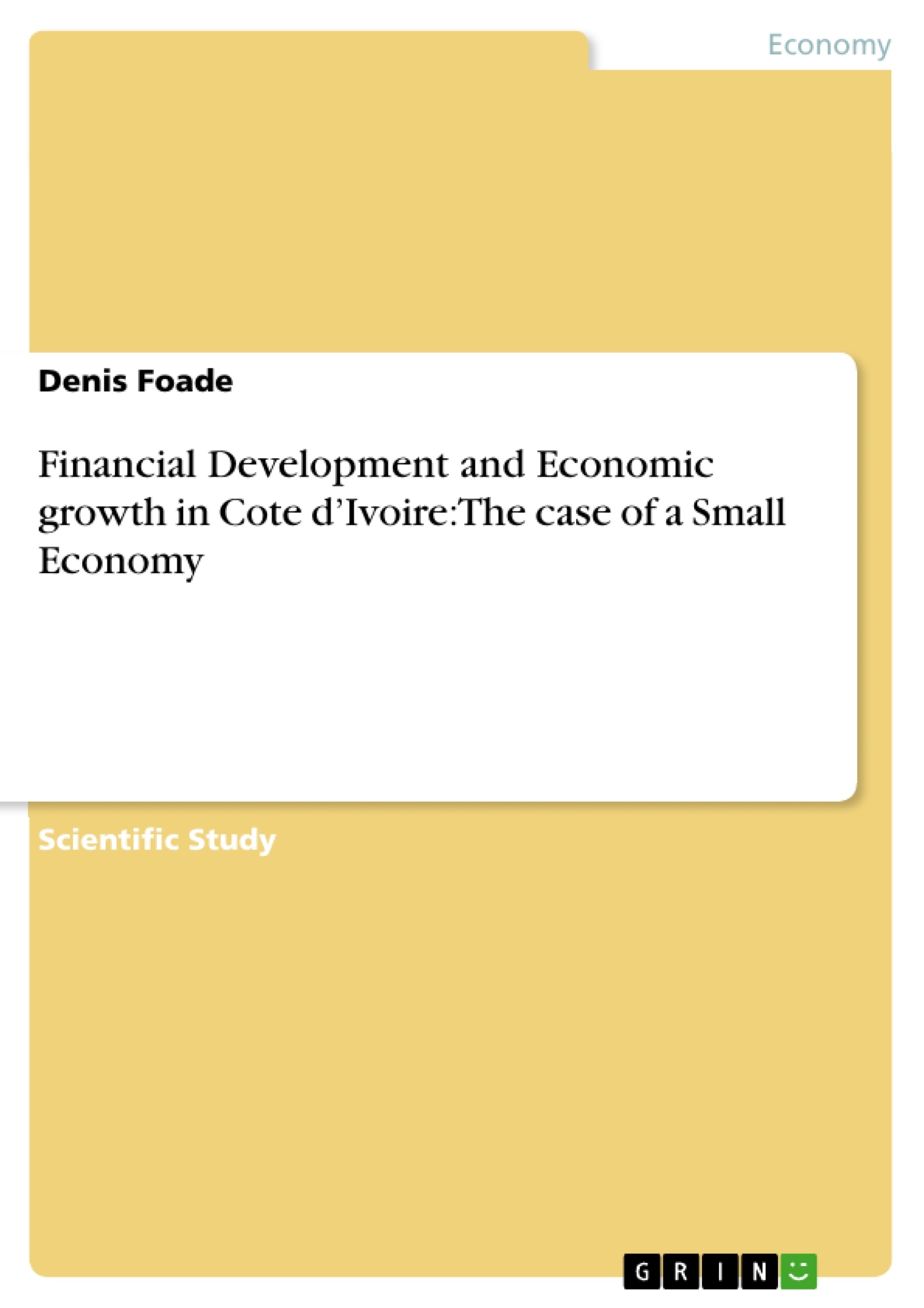The present paper analyzes theoretically and empirically the link between financial development and economic growth in the Ivorian economy. To that end, the contribution of financial development to economic growth is assessed through the broad money (M2) as percentage of GDP ratio (M2/GDP), private credit on domestic credit (CE/CI), liquid liability of out of gross domestic product (DQM/M2), indicating the banking system’s expansion in the mobilization of saving. The analysis is carried through a VAR model.
Key words: Financial development, Economic growth, Velocity of money, risk.
JEL Classification: C32, F41, F43
Inhaltsverzeichnis (Table of Contents)
- Introduction
- Analysis of the determinant of the financial development
- Theoretical Analysis
Zielsetzung und Themenschwerpunkte (Objectives and Key Themes)
This paper aims to analyze the relationship between financial development and economic growth in the Ivorian economy, specifically examining the contribution of financial development to economic growth using various indicators. The study utilizes a VAR model to assess this relationship.
- The link between financial development and economic growth in a small economy context.
- The role of financial intermediation in promoting economic growth.
- The impact of financial system efficiency on capital productivity and economic growth.
- The potential for financial development to contribute to economic growth in Côte d'Ivoire and other WAEMU member countries.
- The application of econometric modeling techniques to analyze the relationship between financial development and economic growth.
Zusammenfassung der Kapitel (Chapter Summaries)
The introduction establishes the context for the study by outlining the historical debate surrounding the relationship between financial development and economic growth. It highlights the key role of financial systems in mobilizing savings, allocating resources efficiently, and managing risk. The paper focuses on the Ivorian economy and aims to contribute to the understanding of this relationship in the context of a small economy and the WAEMU.
The analysis of the determinants of financial development explores the theoretical framework developed by Pagano (1993), which demonstrates the direct and indirect effects of financial development on economic growth. The model highlights the importance of financial system efficiency in transforming savings into investment and minimizing the proportion of consumed savings.
Schlüsselwörter (Keywords)
Financial development, economic growth, velocity of money, risk, financial intermediation, capital productivity, small economy, Ivorian economy, WAEMU, VAR model.
Frequently Asked Questions
What is the relationship between financial development and economic growth in Côte d'Ivoire?
The paper analyzes how a developed financial system mobilizes savings and allocates resources efficiently, which in turn promotes capital productivity and overall economic growth within the Ivorian economy.
Which indicators are used to measure financial development in this study?
The study assesses financial development using the M2/GDP ratio (broad money), private credit as a percentage of domestic credit, and liquid liabilities relative to GDP.
What is the Pagano model mentioned in the analysis?
Developed by Pagano (1993), this theoretical framework explains the direct and indirect effects of financial systems on growth, emphasizing the efficiency of transforming savings into productive investment.
How does financial intermediation impact a small economy?
Financial intermediation helps in risk management and ensures that mobilized savings are not just consumed but directed toward investments that enhance the economy's productive capacity.
What econometric method is used to assess the data?
The analysis is carried out using a Vector Autoregression (VAR) model to examine the dynamic relationship between financial variables and economic growth over time.
- Quote paper
- Denis Foade (Author), 2011, Financial Development and Economic growth in Cote d’Ivoire: The case of a Small Economy, Munich, GRIN Verlag, https://www.grin.com/document/168427



